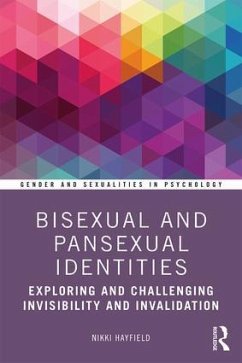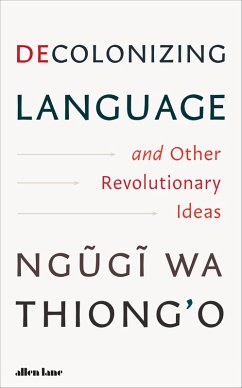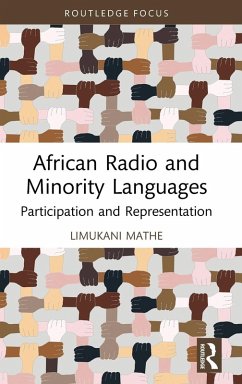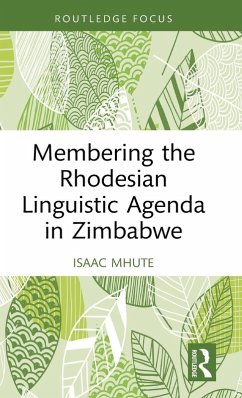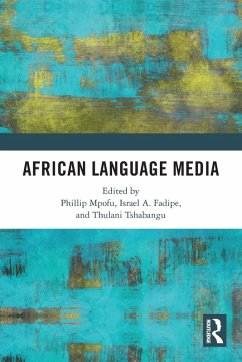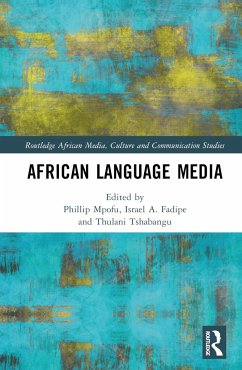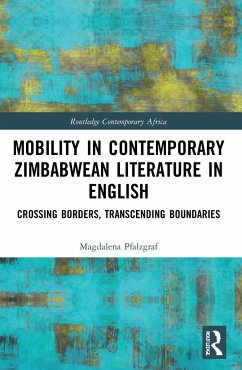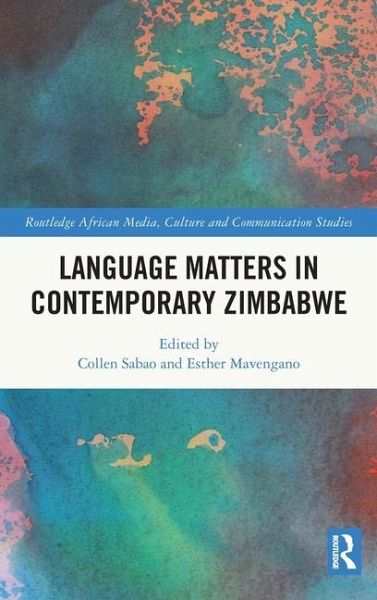
Language Matters in Contemporary Zimbabwe
Versandkostenfrei!
Versandfertig in 6-10 Tagen
154,99 €
inkl. MwSt.
Weitere Ausgaben:

PAYBACK Punkte
77 °P sammeln!
Speaking to a broader global preoccupation with the state of languages and language development, this book considers issues surrounding the diverse languages, linguistic communities, and cultures of Zimbabwe.Reflecting on Shona, Xitsonga, Sotho, Xhosa, Tjwao, Nambya, IsiNdebele, Nyanja, Tshivenda, English and Braille, the book uncovers both the internal and external factors that impact language structures, language use and language ideologies across the country. The book considers how colonial legacies and contemporary language domination and minoritisation have led to language endangerment. I...
Speaking to a broader global preoccupation with the state of languages and language development, this book considers issues surrounding the diverse languages, linguistic communities, and cultures of Zimbabwe.
Reflecting on Shona, Xitsonga, Sotho, Xhosa, Tjwao, Nambya, IsiNdebele, Nyanja, Tshivenda, English and Braille, the book uncovers both the internal and external factors that impact language structures, language use and language ideologies across the country. The book considers how colonial legacies and contemporary language domination and minoritisation have led to language endangerment. It considers the fate of communities whose languages are marginalised and, in the process, poses questions on what can and should be done to preserve Zimbabwean languages. The authors' offerings range across subjects as diverse as music, linguistic innovation, education, human rights, literature, language politics and language policy, in order to build a rich and nuanced picture of language matters in the country.
Coming at a critical moment of increasing mobility, migration, cultural plurality and globalisation, this book will be an important resource for researchers across African literature, linguistics, communication, policy and politics.
Reflecting on Shona, Xitsonga, Sotho, Xhosa, Tjwao, Nambya, IsiNdebele, Nyanja, Tshivenda, English and Braille, the book uncovers both the internal and external factors that impact language structures, language use and language ideologies across the country. The book considers how colonial legacies and contemporary language domination and minoritisation have led to language endangerment. It considers the fate of communities whose languages are marginalised and, in the process, poses questions on what can and should be done to preserve Zimbabwean languages. The authors' offerings range across subjects as diverse as music, linguistic innovation, education, human rights, literature, language politics and language policy, in order to build a rich and nuanced picture of language matters in the country.
Coming at a critical moment of increasing mobility, migration, cultural plurality and globalisation, this book will be an important resource for researchers across African literature, linguistics, communication, policy and politics.






